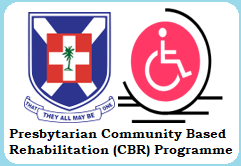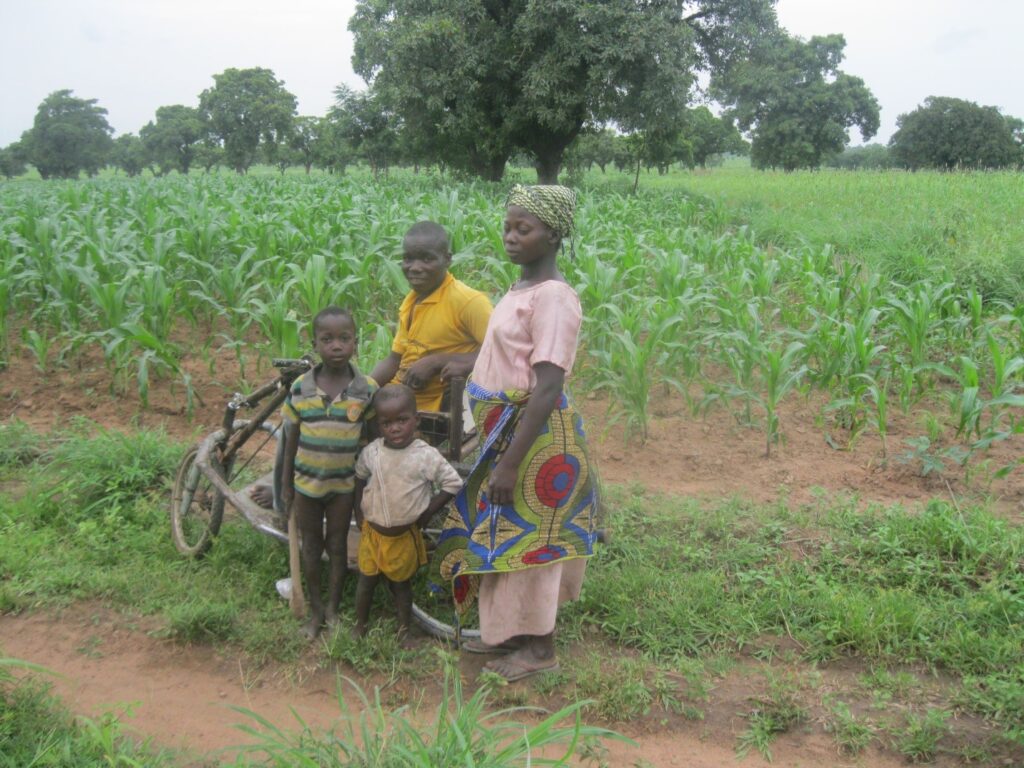
Case Story of John Avoka
John Avoka is a physically challenged client of the Project. He hails from Kugzua within the Garu-Tempane District of the Upper East Region.
John was born about 37 years ago without any form of impairment or disability. At age five, he took ill in what appeared to be severe Cerebral Spinal Meningitis (CSM) combined with stroke resulting in paralysis of his lower limbs. Soon after sustaining the disability, he was neglected and was never sent to school.
Indeed, when he was identified by the Programme some few years ago, he looked dejected ,helpless and hopeless. The programme immediately offered him a tricycle to facilitate his mobility. His family and community members also received sensitization about the need for his care and integration to enable him unearth his potential and realize them to the fullest. The results was positive as he began receiving necessary support and attention from his family and community.
The Programme subsequently offered to train him in agricultural skills which he picked up very fast to the admiration of all. Also, the programme through the PWS&D, supported him with a donkey cart which is used to transport farm inputs and produce . He is presently a lucrative maize farmer and earns over 40 bags of maize per annum. His achievement caught the attention of the Ministry of Food and Agriculture (MOFA) and he was chosen for best farmer award by government in 2013.
He looks cheerful, confident andfull of hope and optimism. No doubt he is presently a role model to people with disabilities in and around his vicinity. He is an executive member of the Disabled People’s Organization (DPO) of Kugzua. He is married to beautiful non-disabled lady and they have two issues.
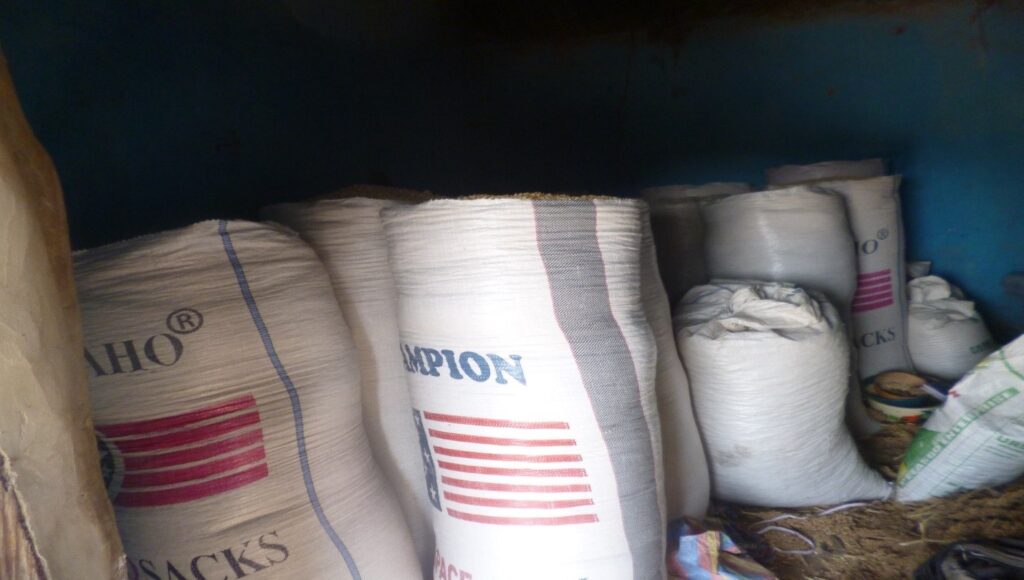
Mr. Seidu Laar, Visual Impairment, at Basoyonde (through Mumuni)
Mr. Siedu Laar, a visually impaired native of the Basoyonde community of the Tempane District of the Upper East Region. Mr. Seidu Laar said he lost his sight through measles infection. He said Mr. Samuel Mbugri, a former field staff of CBR-Garu enrolled him on the CBR programme to become a beneficiary. He was first trained in mat waving and rope making, using the locally-made fibre. He was subsequently trained on how to make stools with ropes.
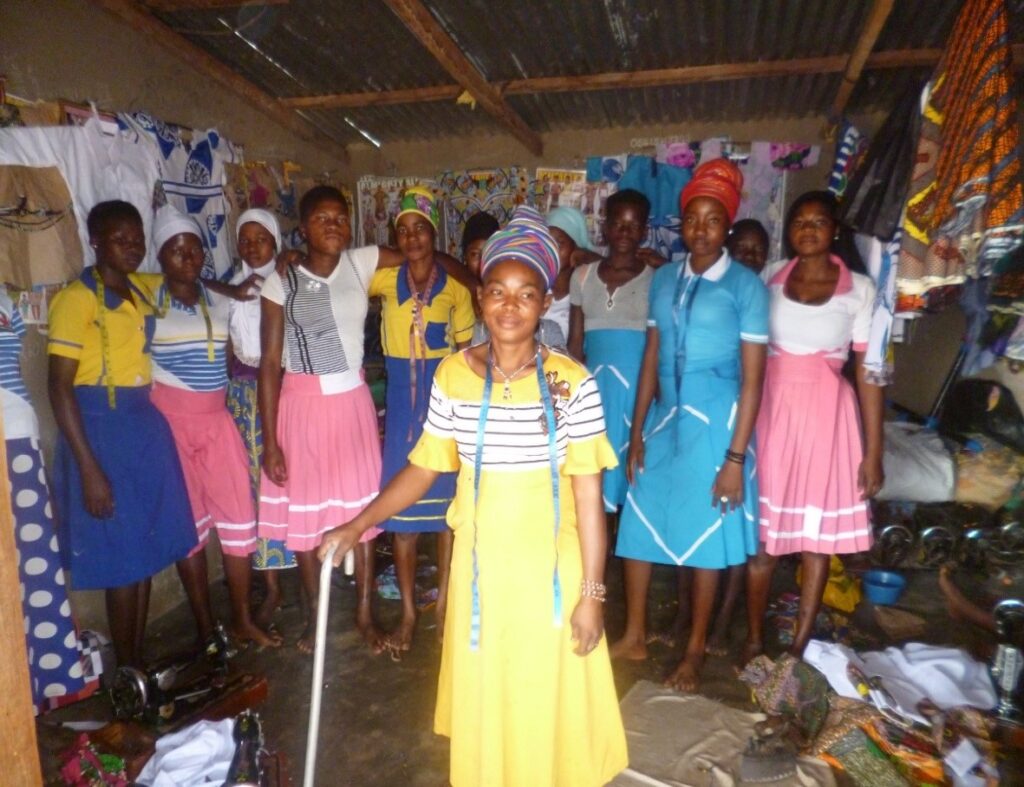
Case Story of Halizata Issah
Mrs. Halizata Issah is a native of the Nakom community in the Pusiga District of the Upper East region. Halizata was born to Mr. Gamberu (father) and Madam Adisah (mother) without disability. She was, however, infected with poliomyelitis at the age of eight (8), which resulted in paralysis in both legs. Unlike her other siblings who got the opportunity to go out to play and to have fun, she was kept indoors because she could not move. During field visits, an official of CBR-Garu identified and later introduced her to the programme. She was given a tricycle to make her mobile. She said, that was a big relief to her as she was able to then move about to perform some basic tasks on her own.
Halizata was subsequently enrolled on vocational skills training (dress making) at no cost to her and the parents. Halizata said she also received some functional literacy training in her community as part of the CBR support; this was aimed at supporting her to acquire some basic literacy and numeracy skills to be able to take measurements. Since becoming an expert dressmaker and starting her business, Mrs. Halizata Issah has trained other persons who are now proficient in the dressmaking vocation. At present, sixteen (16) Apprentices are under her tutelage.
She takes an enrolment fee of not less than GH¢150.00 from each apprentice. Halizata says she makes an average of GH¢400.00 a month from her vocation, from which she is able to support the educational needs of her children. She is currently married with three children.
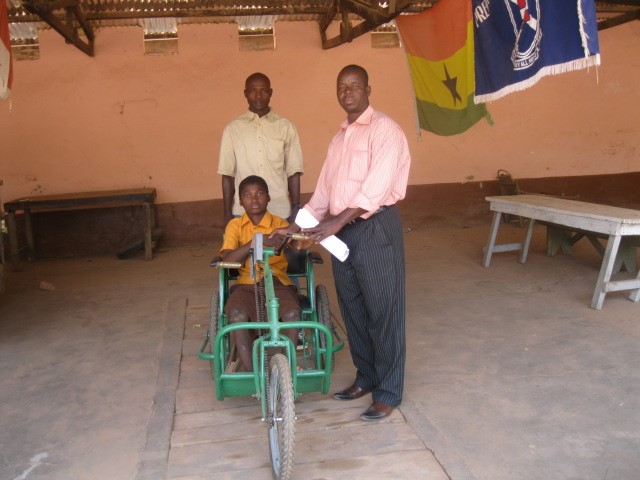
Case Story of Gifty, Kweku and Ladi
The success story of three children with physical disability namely: Yakubu Gifty, David Kweku and Bachelor Ladi is worth recounting. These three children aged 13,15 and 14 respectively are from Dusbuliga, Basyonde and Denugu, all in the Garu-Tempane District of the Upper East Region of Ghana.
Even though they are from different family backgrounds and communities as above, they shared a common problem summed up in one word as “neglect”. In view of their disabilities ,the parents of these children simply did not see the need to send them to school. Thus, whilst their non-disabled siblings were put in schools, they were left out under the pretext of mobility constraints and the drudgery of having to be carrying them to school each day.
Following community surveys conducted by Programme Officers, the three children were identified in separate occasions. They were assessed and registered under the Programme. The families and community members of these children were also sensitized on the need for them to be enrolled in Schools. They were subsequently enrolled in Schools and are learning along with their peers. Besides, each of them were later given a tricycle to enhance their mobility. As a result, they are able to move independently to their respective Schools and are well integrated. The Programme, under the auspices of the PWS&D offered support in the form goats and farm inputs such as seed to the families of these children. This has empowered these families economically and they are able to fend for the children in school.
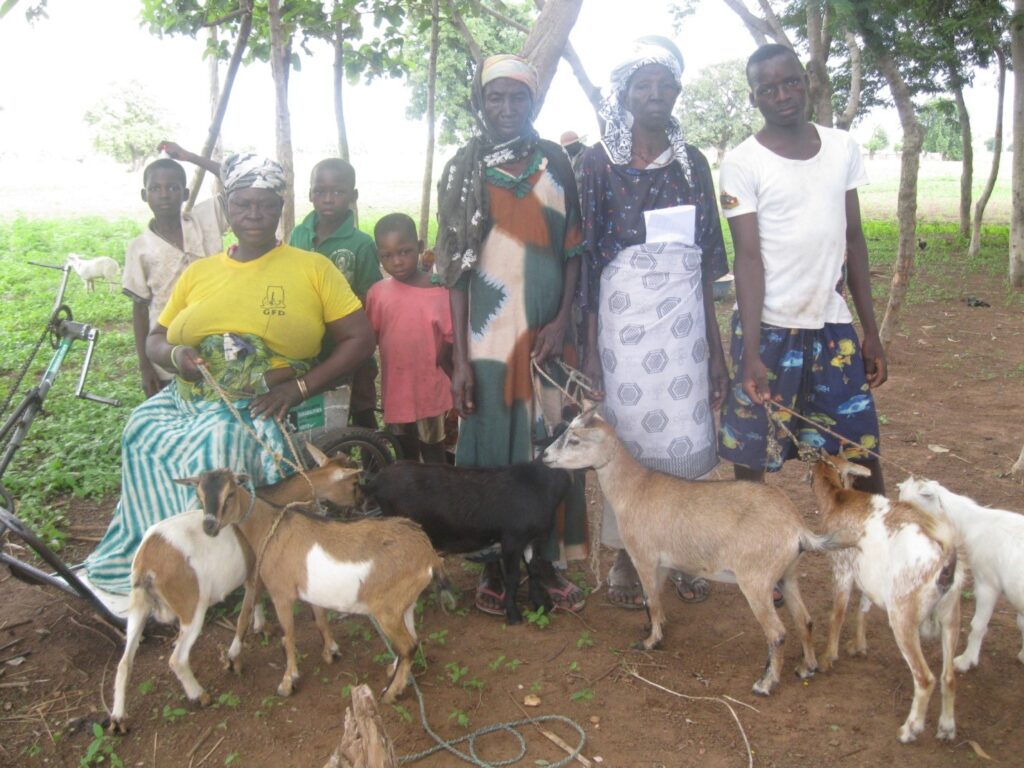
Case Story of Esther Awidana
Esther Awidana, aged 45 is physically challenged. She hails from Kugsabilla within the Project’s catchment area. In view of her disability, her parents did not find any potential in her and hence she was not sent to School. She grew up to be non-literate whose main work was to stay at home taking care of babies and watching over the house whilst other household members were out working to generate income. Poor Esther was dependent on the charity of other family members for survival and where such benevolence felt to come, she simply had to starve.
Some few years ago, she was identified by the programme during a community survey conducted by a field worker. She was registered and subsequently provided with a Tricycle to facilitate her mobility. She was also trained on agricultural skills and petty trade to boost her source of income. Indeed, through the support of the PWS&D Canada, Esther Awindana got the necessary support to engage in crops and livestock production as well as petty trade and has been very successful. For instance, she received 2 goats from the programme as breeding stock and this has multiplied to 6 goats in less than three years. This has boosted her source of livelihoods and earned her a lot of respect from family and community members. She is married and has 4 children.
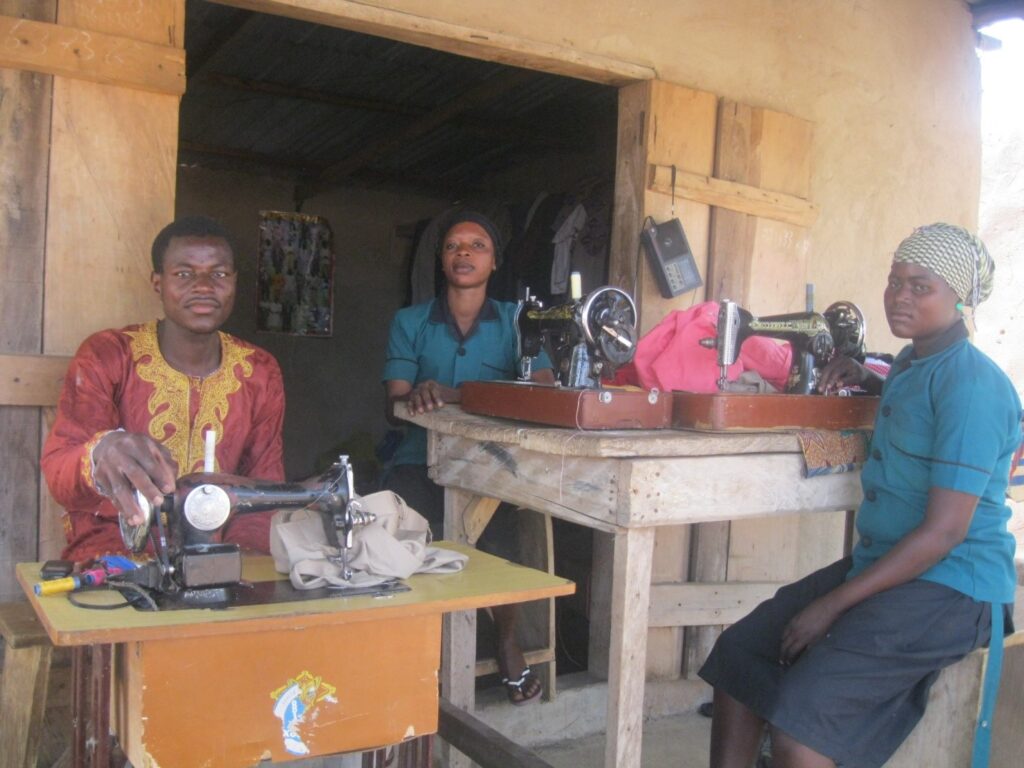
Case Story of Mohammed Kadiri
Mohammed Kadiri, aged 21 is a male client of the Programme. He comes from Bawku within the operational area. He suffered from osteomyelities and was not sent to School by her parents. Over 6 years ago, Mohammed Kadiri was identified by the Programme through a community volunteer. He was subsequently referred to the Bawku Othopaedic/Physiotherapy Project for further diagnoses and intervention. The results of the orthopaedic nurse proved positive and he was thereafter transferred to the Nsawam Orthopaedic Hospital for further attention. At Nsawam, his right leg was amputated through a surgical operation. The Programme in collaboration with Lillian Fundation supported the client to acquire an artificial limb to enhance his mobility.
Furthermore, the Project under the auspices of the PWS&D, Canada enrolled Mohammed Kadiri into Project’s Vocational Training Centre in 2009 where he learned integrated skills in dressmaking, batik, Tie and Dye, soap production and functional literacy. He picked up very fast and graduated successfully in 2011. Currently, he is lucratively engaged in dressmaking and batik, Tie and Dye Business and generates an average of GHC60.00 per week. He has also become a master trainer with about 2 apprentices. He is able to fend for himself, his wife and some extended family members. All these positive impacts on the life Mohammed wouldn’t have been possible but for the support of the PWS&D, Canada. Recently, during a monitoring visit conducted by the vocational skills instructor , Madam Lucy Wandusim, Kadiri could hide his joy. He was full of praises to the programme and the PWS&D, Canada for offering him the necessary support to turn his life around.
